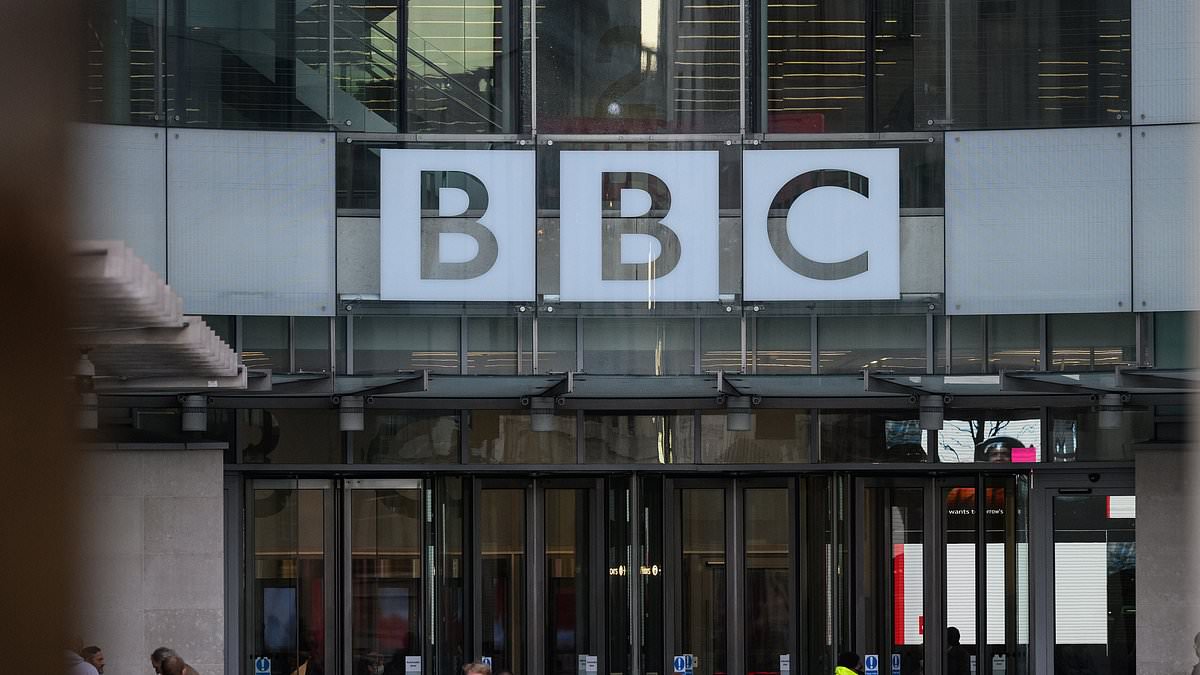Ministers are preparing to decriminalize non-payment of the BBC TV licence fee amid fears that women are being ‘disproportionately targeted’.
Culture Secretary Lisa Nandy and Justice Secretary Shabana Mahmood are reportedly in agreement that failure to pay the licence should no longer be a criminal offence.
A senior government source has today said the ‘administrative burden’ that comes with prosecutions is ‘not worth the hassle it creates’ and should be scrapped.
The Times reported that a change to non-payment enforcement will be part of the negotiations between the government and the BBC, which begin in January.
Concerns have been raised about the disproportionate number of women who have been pursued through the legal system for failing to pay their TV licence. They account for around 70 per cent of those fined.
Nearly 1,000 people are prosecuted each week for not paying their TV licence fee, which costs £169.50 a year — it is the most common crime in the country apart from motor offences.
Human rights lawyer Cherie Blair told The Times ‘it’s absurd’ to think that a third of all female convictions are for not paying a TV licence fee.
She said: ‘The cost of those women’s places in prison, the impact on their children, the fact that they’ll probably lose their accommodation — I mean, what is the sense in that? There is absolutely no sense in it whatsoever’.
Campaigners also believe it is a regressive response to the UK’s poverty crisis, as many of the women being prosecuted are vulnerable and have significant health and financial difficulties.
Former Conservative culture secretary, Lucy Frazer previously said that prosecuting people for not paying their TV licence was ‘morally indefensible in modern times’.
According to the BBC’s most recent annual report, a total of 23.9million households in Britain continued to pay the £169.50 licence fee, compared to 24.4million in the previous year.
The fall came during a cost-of-living crisis, which will have influenced feepayers’ priorities, but also against growing competition from social media and streaming services including Netflix.
There has been an £80million fall in year-on-year licence fee income, at a time when the BBC has said its finances have been hit by funding cuts and high inflation.
The drop has also raised questions about how many households felt they could do without BBC services.
The report set out the BBC’s ‘weekly reach’ for different age groups, and revealed younger viewers were more likely to watch YouTube or Netflix.
Under 16s rated the corporation third in their ‘most used’ media brands, although 16 to 34-year-olds rated it second, after YouTube.
It was highest rated for older adults, but its lack of engagement for younger viewers raised questions over the future of the licence fee.
The BBC has until the end of 2027 to agree a funding deal with the new Labour government.
In its annual report, the corporation said its television, radio and online services were used by 85 percent of British adults, and said it continued to ‘aim to offer great value for all’.
The licence covers live television and everything on the BBC – you won’t need to sign up for one if you watch on-demand content on Amazon Prime, ITVX or Sky, amongst others.
However, if you used Sky to watch a live football match you would need one – and the TV Licensing Authority are notorious for catching people out.
You could be fined up to £1,000 or even taken to court if you are accessing services without a license.
In 2022, an astonishing 44,106 Brits were convicted and handed fines up to £1,000 – making it the most common crime in the country, excluding motoring offences.
While you can’t be put in prison for evading the licence fee, you can be for failure to pay the hefty four-digit fine.
But some people are exempt, for example f you’re older than 75 and claim pension credit.
A TV Licensing spokesperson said: ‘TV Licensing enforcement policy has not changed, and we have a duty to enforce the law when there is evidence that someone has avoided paying for a TV Licence.
‘What we have done is made considerable efforts to help people get licensed and offer help and support. So while we take appropriate action where necessary, we work hard to support those most in need, offering a number of concessions and payment plans to ensure people can obtain a licence in the way that suits them best.
‘Our focus on collecting the licence fee fairly and efficiently ensures that the overwhelming majority of households are correctly licensed.’
